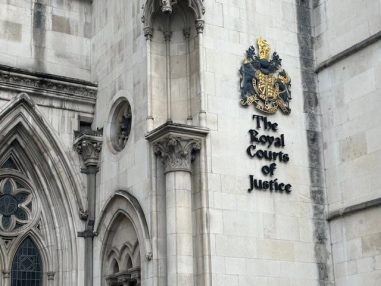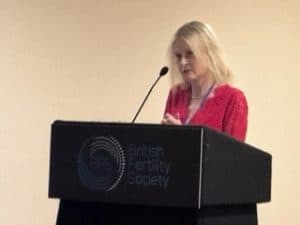11 February 2025
The recent case of KL v BA [2025] EWHC 102 (Fam) brings into focus the complex legal issues that arose when genetic testing showed that a non-biological father was registered in error on a child’s birth certificate. The central issue in the case was whether the effect of a declaration of non-parentage in respect of the non-biological father who had mistakenly been registered as the child’s father rendered his acquisition of parental responsibility void ab initio (never having had any legal effect) or whether this could only be removed by court order.
Background
The case concerned a little girl (MA) born on 24 May 2020 and who was therefore aged 4 years old. The applicant (KL), who was not married to the little girl’s mother, had been registered as her father on her birth certificate and was subsequently found not to be her biological father following genetic testing. The little girl’s mother (BA) then made an application to court for a declaration of non-parentage and to remove KL’s (putative or supposed) parental responsibility. Whilst the application for a declaration of non parentage was not contested, the discharge of KL’s putative parental responsibility for the little girl was disputed.
In brief, the parties formed a relationship in 2019 and BA told KL that September that she was pregnant and expecting a child. Following MA’s birth, both parties shared her care although the amount of time they lived together was also contested. KL thought he was MA’s biological father and he went on to register her birth jointly with her mother on 6 July 2020 and was registered as her father on her birth certificate. Sadly, KL and BA’s relationship ended in December 2022 and this was when BA told KL he might not be MA’s biological father. As a result, genetic testing was undertaken in October 2023 which showed that KL was not MA’s biological father but he still considered her to be his daughter and wished to continue to be a father for her. The little girl’s true biological father made it clear that he did not seek active involvement in her life and he preferred to wait until MA was old enough to decide for herself whether she wished to have a relationship with him.
Following the parties’ separation, the little girl lived with her mother and to begin with saw KL regularly for overnight and weekend stays. However, by May 2023 this arrangement broke down and the little girl’s mother refused to allow unsupervised contact. This led to KL making an application to the English Family Court for a child arrangements order in June 2023. KL then made an application for a parental responsibility order in November 2023, which was presented as a “pre-emptive application” in case BA raised an issue about the removal of his parental responsibility following the genetic testing results.
On 9 February 2024, a Dispute Resolution Appointment took place before lay magistrates. KL was legally represented and the little girl’s mother was not present nor was she represented. Legal arguments were made on behalf of KL that he had parental responsibility at the time because he was still named on MA’s birth certificate and he sought an order “for the continuation of this Parental Responsibility in the interim” pending determination at a contested hearing if necessary. The little girl’s mother had filed a position statement for the hearing requesting that KL’s parental responsibility be removed. The lay magistrates at the hearing went on to make an order that KL’s parental responsibility should continue until further order and determination at a future hearing, believing this was the legal position at the time.
Following the Dispute Resolution Hearing, the little girl’s mother took her abroad and did not return to England and Wales until August 2024. This resulted in KL seeking and receiving a location order at a hearing before Mrs Justice Theis in the High Court on 16 August 2024. Thereafter, the little girl’s mother made an application for a declaration of non-parentage that KL was not MA’s father. The case was then listed for further court hearings in the High Court, Family Division, on 4 December 2024 and 27 January 2025 to determine the legal issues surrounding the non-biological father’s parental responsibility and other issues about contact. KL did not oppose the application for a declaration of non-parentage and the Judge, Deputy Judge Powell, indicated that she would make that order. The Judge went on to reserve judgment about the legal issues regarding parental responsibility.
Parental Responsibility
The legal issues for determination of parental responsibility in the case were the subject of differing judicial opinion and conflicting published decisions at High Court and Circuit Judge level. In Re SB [2022] EWFC 11 HHJ Case considered whether the discharge of a man’s parental responsibility was an automatic consequence of the declaration of non-parentage or whether it required a separate welfare-based decision. HHJ Case ruled in her first judgment in Re SB that the discharge of parental responsibility is not automatic on the making of a declaration of non-parentage and it requires a welfare analysis.
In Re C [2023] 3 WLR 1, HHJ Moradifar, sitting as a High Court Judge, concluded that where a man had obtained parental responsibility for a child by being registered as father on their birth certificate, the registration and grant of parental responsibility of s4(1)(a) Children Act 1989 are based on a presumption that is rebuttable that he is the child’s biological father. If that presumption is rebutted then the basis for parental responsibility is displaced. Parental responsibility is lost by way of an order of the court as required by s4(2A) Children Act 1989 which reflects the status of the adult person and this does not require a welfare analysis. HHJ Moradifar did not consider that parental responsibility ceases ab initio (never having had any legal effect).
When HHJ Case gave her second judgment in Re SB (No 2) [2023] EWFC 58 B, this followed the publication of Re C. HHJ Case determined that it would be contrary to public policy and the intentions of Parliament for a man’s parental responsibility to cease ab initio on a declaration of non-parentage. She reiterated that a man incorrectly named as father on the birth certificate did acquire parental responsibility under s4(1)(a) Children Act 1989 and that a separate court order was required under s4(2A) Children Act 1989 terminating parental responsibility.
Deputy Judge Powell ruled that KL was not eligible to register MA’s birth with her mother and thereby acquire parental responsibility as he was not her biological and legal father even though he thought he was. The Court applied the natural and ordinary meaning of s4(1)(a) Children Act 1989 that only a biological or legal father can acquire parental responsibility by being named on the child’s birth certificate. The Court of Appeal case of P v Q and F (Child: Legal Parentage) [2024] EWCA Civ 878 states that the registration of the birth is simply evidence of parentage and where an issue arises about parentage it must be determined by the court. The Judge went on to rule that KL did not acquire parental responsibility under s4(1)(a) Children Act 1989 when he was mistakenly registered as MA’s father on her birth certificate and “so he has never held parental responsibility”. As a result, no order is required under s4(2A) Children Act 1989 to remove parental responsibility from him (in other words it was void ab initio). The Judge concluded that KL’s applications for child arrangements and other orders for MA would thereafter be determined by the local family court.
Need a Family Lawyer?
As such the case of KL v BA [2025] EWHC 102 (Fam) brings into close focus the complex legal issues that arose when genetic testing showed that a non-biological father was registered in error on a child’s birth certificate.
Do you need expert legal help to navigate genetic testing, legal and biological parentage, parental responsibility, an application for a Declaration of Parentage or rectification of a birth certificate? If you would like to discuss your situation or you would like specialist legal advice contact Louisa Ghevaert by email louisa@louisaghevaertassociates.co.uk or by telephone +44 (0)20 7965 8399.
Images: Louisa Ghevaert, CEO & Founder Louisa Ghevaert Associates
To find out more about Louisa Ghevaert click here.







